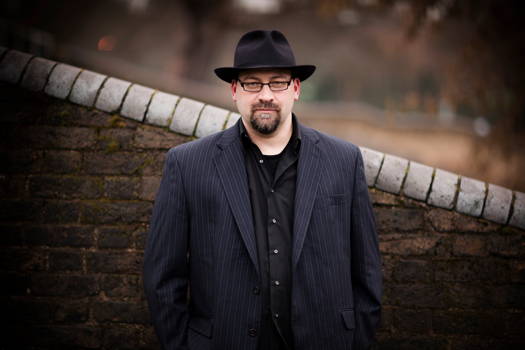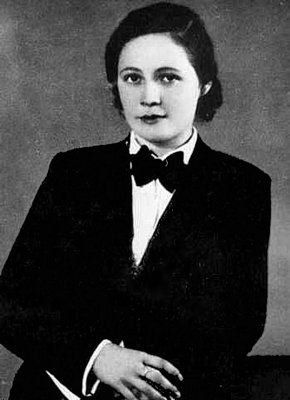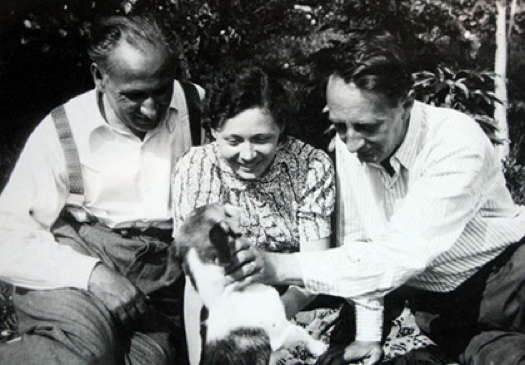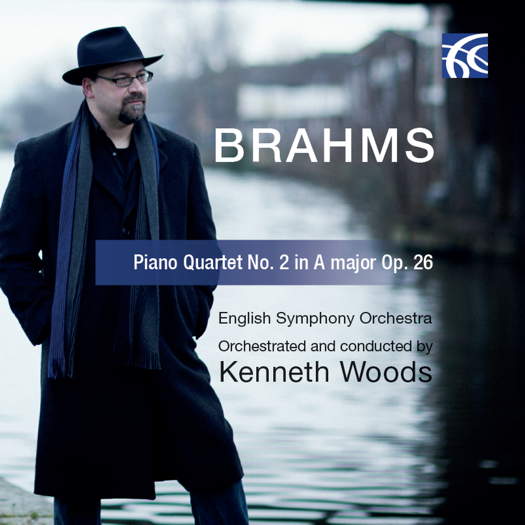- marimba
- Makoto Moroi
- Christine Schweitzer
- Zurich
- Kyle Albertson
- Helene Bresslau Schweitzer
- Massachusetts Institute of Technology
- Atlantic Ocean
Venus Unwrapped
KEITH BRAMICH is impressed by
Noriko Ogawa, Kenneth Woods and the strings of
the English Symphony Orchestra
I was very proud to be in the audience at Hall 1, Kings Place, London UK last night (Sunday 28 April 2019) for a concert by the strings of my local Worcestershire-based English Symphony Orchestra, conducted by the group's musical director, Kenneth Woods. They brought a rather exciting and unusual programme to London, most of which had been played recently in Hereford. I'm ashamed to say that this is the first time that I've ever heard them play live.

American conductor and cellist Kenneth Woods. Photo © 2011 Benjamin Ealovega
This full-length evening concert, with interval, ended with Antonín Dvořák's wonderful five-movement Serenade for Strings, written speedily in 1875 during a happy and successful period in Dvořák's life. The composer's happiness shines throughout this carefree and imaginative work, and I could sense the effect on the musicians and feel it in myself.
This concert had several special features, one of which was that the Serenade was played in Robin Tait's newish (2016) Bärenreiter urtext edition, which restores the music of two major cuts which had been made in the original 1879 and more recent 1955 editions. As Ken Woods explained to the audience, one of these replaced sections removes a difficult corner in the music. Dvořák was normally careful not to make things difficult for musicians, so this awkward moment had presumably been created by careless editing.
Another special feature was that a short work by American composer Steven R Gerber (1948-2015), not mentioned in the concert publicity, was played immediately before the Dvořák Serenade. Homage to Dvořák, with its rich harmonies, is the first movement of Gerber's Spirituals (2000) for string orchestra, and the subtitle, 'Goin Home', gives the clue that this is based on the New World Symphony slow movement's main theme.
The evening was part of Venus Unwrapped, a series of over sixty events running at Kings Place throughout 2019, which 'focuses on the creative firepower of women composers'. In many ways the most powerful work last night was the Partita for piano and strings, Op 20 (1939) by Moravian composer and conductor Vítězslava Kaprálová (1915-1940).

Vítězslava Kaprálová in 1935
This is an extraordinary and little-known work for piano and strings by a young woman who was to die just a year later, from tuburculosis, aged only twenty-five. Kaprálová was for a while the pupil of another Czech composer, Bohuslav Martinů (1890-1959). They became lovers and both wrote music to impress one another. Kaprálová's Partita was inspired by Martinů's Tri Ricercari.

From left to right: Vítězslav Kaprál (Kaprálová's composer father, 1889-1947), Vítězslava Kaprálová and Bohuslav Martinů
This striking work has a bold energy, and last night's performance was persuasive enough to modify my breathing rhythm - always a sign of something powerful happening. The pianist in this demanding work was Noriko Ogawa, born in Kawasaki, Japan in 1962, and based in London. Charming to speak to after the concert, she is also, according to Ken Woods, very easy to work with.

Publicity material for the 28 April 2019 concert at Kings Place. Noriko Ogawa photo © 2011 Satoru Mitsuta
We also heard Noriko Ogawa in more lyrical mode, making the piano sing in Mozart's charming Piano Concerto No 13 in C, K 415 (1782-3), performed here in the composer's alternative scoring for solo piano and strings. This concerto has mostly been compared unfavourably by critics with the later and better-known No 21 in the same key, but, deliberately avoiding making that comparison, I felt that this performance was complete and satisfying, with piano and orchestra delightfully complementary. The last movement also has a mischievously unexpected 'throw-away' ending.
Beginning the evening was another Partita, by Martinů, for strings. Dating from 1931, before the period when he knew Kaprálová, it shimmers with a witty neoclassical energy which seems to resolve to a calm major chord at the end of each movement.

Bohuslav Martinů in 1943
All very impressive. I look forward to reporting on another English Symphony Orchestra concert soon.
Copyright © 29 April 2019
Keith Bramich,
Worcestershire, UK





